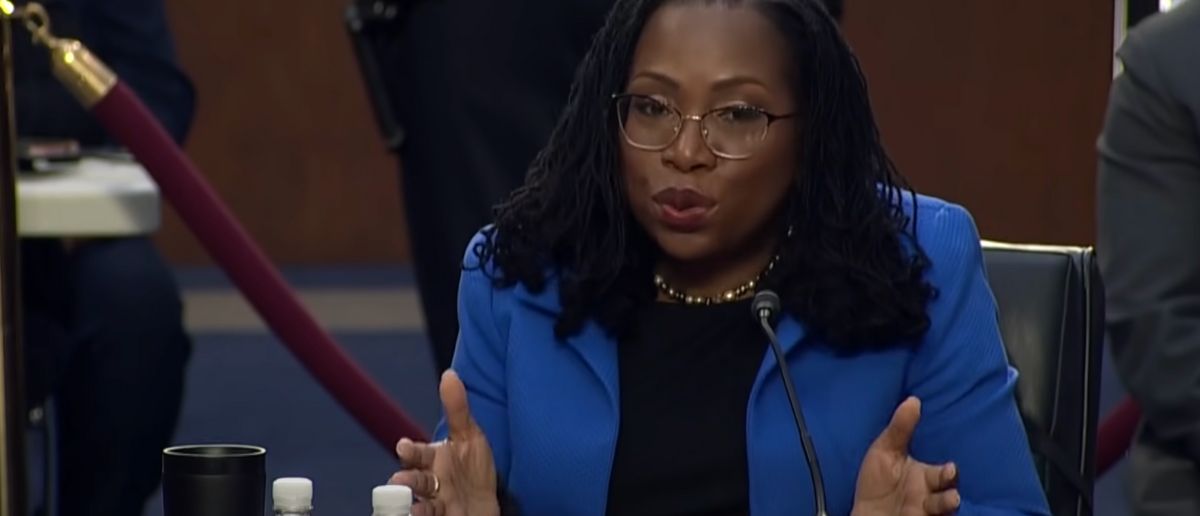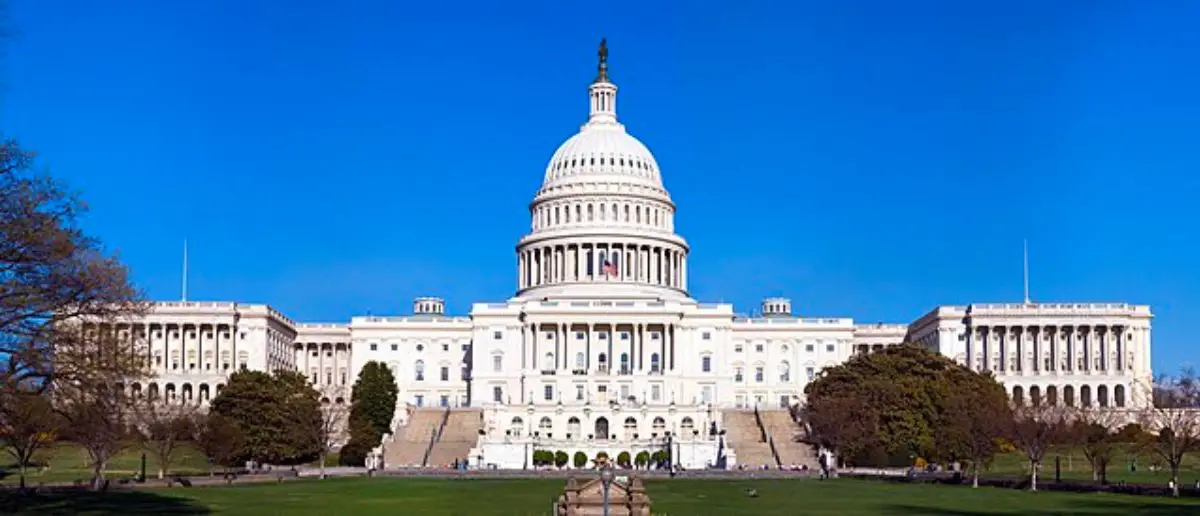
Not all Supreme Court Justices are built the same. Some are viewed very poorly by Americans.
That’s why this U.S. Supreme Court Justice was just roasted by Fox News hosts on live TV.
A Fox News panel on Friday sharply criticized Supreme Court Justice Ketanji Brown Jackson, accusing her of politicizing her role on the bench. During an interview with ABC News Live Prime anchor Linsey Davis on Saturday, Jackson acknowledged public scrutiny of her performance as a justice. Republican National Committee senior adviser Danielle Alvarez and Fox News contributor James Freeman, appearing on America’s Newsroom, argued that Jackson’s focus has veered from legal interpretation to seeking public attention.
Alvarez criticized Jackson’s remarks about her performance, suggesting that if she wants to “perform,” she should pursue a career in theater rather than on the Supreme Court. Notably, Jackson made history as the first justice to appear on Broadway in December, according to NPR. Alvarez further pointed out that even Justice Sonia Sotomayor, a fellow liberal, distanced herself from Jackson’s dissent against President Donald Trump’s efforts to streamline the federal workforce.
Alvarez emphasized that Jackson’s politicization of her role is dangerous, particularly highlighting Sotomayor’s refusal to join her dissent. She noted that Sotomayor viewed Trump’s executive order as a lawful directive for agencies to plan workforce reductions within legal bounds. Alvarez argued that Jackson should focus on interpreting the law rather than acting as an influencer driven by emotion.
Freeman echoed Alvarez, asserting that Jackson prioritizes crafting soundbites for media outlets like The New York Times or MSNBC over making substantive legal arguments. He criticized her for citing The New York Times as if it were legal authority in a dissent, where she claimed the court favored “moneyed interests” without evidence. Freeman suggested she owes an apology to her colleagues, including Sotomayor, for her approach.
Freeman also highlighted Jackson’s tendency to issue solo dissents, noting that other liberal justices often avoid joining her due to the weak legal grounding of her arguments. He specifically referenced her dissent in a case involving nationwide injunctions, where she called their limitation an “existential threat to the rule of law,” despite such injunctions lacking constitutional basis or historical precedent for much of U.S. history.
In the case addressing Trump’s federal workforce reduction, Jackson was the lone dissenter, while Sotomayor acknowledged that presidents cannot unilaterally restructure agencies but clarified that the executive order aligned with existing law. Host Dana Perino pointed out that Justice Amy Coney Barrett issued a sharp rebuke of Jackson’s dissent in Trump v. CASA, which curtailed district courts’ ability to issue nationwide injunctions.
Alvarez reiterated that Jackson’s politicization of her position undermines the integrity of the Supreme Court, emphasizing that such behavior is inappropriate for a justice. Freeman questioned the decision to appoint Jackson, suggesting her inability to define “woman” during her 2022 confirmation hearing—where she stated, “I’m not a biologist”—foreshadowed her lack of scholarly rigor.
Critical Analysis of Justice Jackson’s Controversial Tenure
Justice Ketanji Brown Jackson, appointed by President Joe Biden in 2022 as the first Black woman on the Supreme Court, has emerged as a polarizing figure, often criticized as a radical, far-left justice whose approach undermines judicial impartiality. Her tenure has been marked by fiery dissents, solo stances, and public statements that critics argue prioritize political activism over legal reasoning. This has drawn sharp rebukes from colleagues and commentators, who view her as straying from the court’s traditional role.
Jackson’s critics point to her dissent in Trump v. CASA, where she labeled the court’s decision to limit nationwide injunctions an “existential threat to the rule of law,” as evidence of her radicalism. Justice Amy Coney Barrett, writing for the majority, called Jackson’s position “extreme” and unsupported by precedent or constitutional doctrine, accusing her of advocating for an “imperial Judiciary”. Many legal experts are concerned Jackson’s arguments often lack the legal rigor expected of a Supreme Court justice, leaning instead on emotive rhetoric.
Her solo dissent in a case involving Trump’s federal workforce reduction further highlights her isolation, even among liberal colleagues. Justice Sonia Sotomayor, while agreeing that presidents cannot unilaterally restructure agencies, declined to join Jackson’s dissent, which critics argue exaggerated the legal implications for political effect. This pattern of solo dissents suggests Jackson’s views are too extreme even for the court’s liberal wing, raising questions about her judicial temperament.
Jackson’s public statements have fueled perceptions of her as a far-left activist. At the Indianapolis Bar Association in 2025, she expressed concern over “the state of our democracy,” a remark critics interpret as an attempt to appeal to progressive audiences rather than maintain judicial neutrality. Such comments, coupled with her acknowledgment of public scrutiny in an ABC News interview, suggest she is more focused on shaping public perception than delivering impartial rulings.
Her reliance on non-legal sources, such as citing The New York Times to allege the court favors “moneyed interests,” has drawn particular scorn. Critics argue this reflects a lack of scholarly depth and an inclination to pander to liberal media outlets. Her failure to provide evidence for such claims further erodes her credibility, with commentators like James Freeman suggesting she owes an apology to her colleagues for undermining the court’s integrity.
Jackson’s confirmation hearing in 2022 also remains a point of contention. Her refusal to define “woman,” citing her lack of expertise as a biologist, was seen by conservatives as evasive and indicative of her alignment with progressive ideologies that prioritize identity politics over clear legal reasoning. This moment, coupled with her nomination being explicitly tied to her race and gender, has led critics to argue she was selected for political optics rather than merit.
The Telegraph has been particularly scathing, labeling Jackson’s nomination a product of “DEI idiocy” and arguing that her “intellectually indefensible” dissents humiliate the court. Such criticism portrays her as unqualified, with her frequent solo dissents seen as evidence that even her liberal colleagues find her arguments lacking.
Jackson’s defenders, however, argue she is a bold voice challenging a conservative majority that often aligns with corporate or executive interests. In cases like Diamond Alternative Energy v. EPA, she accused the court of favoring big business over vulnerable citizens, highlighting disparities in legal standing. Yet critics counter that her focus on social justice themes, such as invoking the Colored Conventions in a dissent on the 14th Amendment, veers into activism that distorts historical and legal analysis.
Her prolific output—24 opinions in the 2024-2025 term, second only to Justice Clarence Thomas—shows an active presence, but critics argue quantity does not equal quality. Her dissents often criticize the court’s conservative majority for enabling Trump’s agenda, such as in cases involving birthright citizenship or federal workforce reductions, but lack the nuanced legal arguments needed to persuade her peers.





